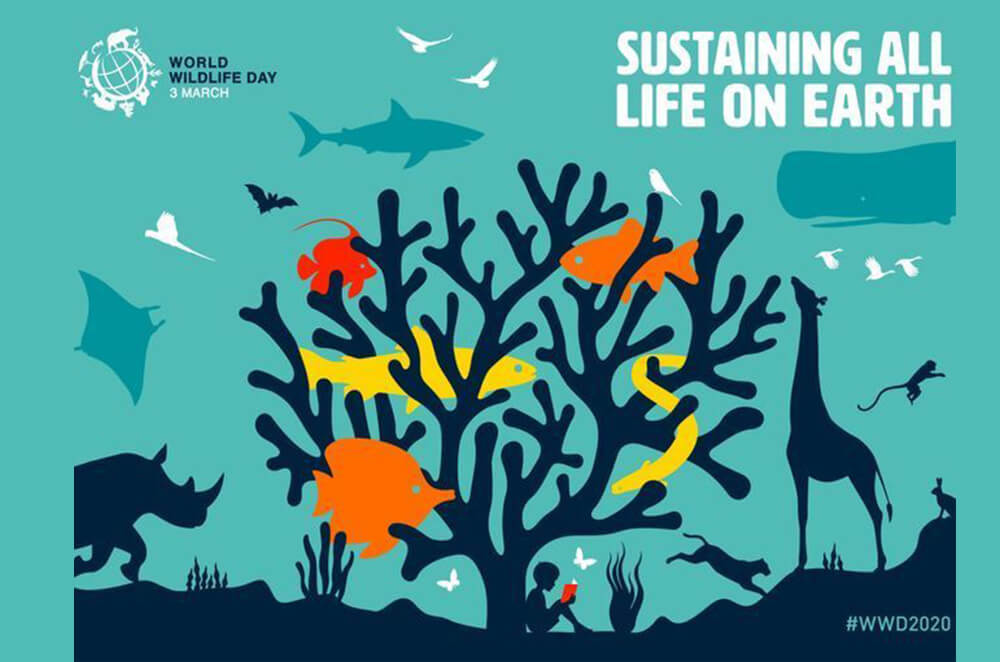
Celebrate World Wildlife Day: Simple Actions to Protect Our Planet's Ecosystems
Fecha: 10/03/2025
Each year, on March 3, we celebrate World Wildlife Day, a global initiative that highlights the importance of protecting wildlife and the ecosystems that sustain all life on Earth. In 2025, the theme, "Wildlife Conservation Finance: Investing in People and Planet," emphasizes the urgent need for innovative solutions to halt biodiversity loss and ensure the sustainability of natural habitats.
With over a million species now at risk of extinction and more than half of the global economy reliant on nature, the stakes couldn’t be higher. As we commemorate the 50th anniversary of the Convention on International Trade in Endangered Species of Wild Fauna and Flora (CITES), World Wildlife Day serves as a reminder of our shared responsibility to protect the natural world.
But conservation isn't just about large-scale initiatives—it’s also about the everyday choices we make, especially when visiting the world’s most fragile environments. Whether relaxing on a pristine beach, kayaking along a serene river, or hiking in a vibrant natural reserve, we can all take small but meaningful steps to leave these spaces cleaner and healthier for future generations.
Here’s a list of practical habits and eco-conscious actions you can adopt to minimize your footprint and contribute to the global effort to safeguard our planet’s biodiversity.
Before Your Trip
Pack Reusable Essentials
Bring reusable water bottles, utensils, straws, and containers to reduce single-use plastics. Avoid bringing disposable plates, cups, or cutlery. Opt for reusable or compostable alternatives.
Choose Eco-Friendly Products
Use biodegradable sunscreen and insect repellent to avoid polluting water and harming marine life. Avoid using soap or detergent directly in rivers or streams, even if labeled biodegradable.
Travel Light
Pack only what you need to reduce the ecological footprint of your journey.
During Your Visit
Leave No Trace
Take everything you bring with you. Avoid leaving behind trash, food scraps, or belongings. Additionally, collect any trash you find and dispose of it responsibly -even if it’s not yours.
Respect Wildlife
Observe animals from a distance. Avoid feeding or disturbing them, as this can disrupt their natural behaviors.
Be Mindful of Fires
Only light fires in permitted areas and extinguish them completely to avoid wildfires.
Avoid Walking on Coral or Disturbing Riverbeds
Coral reefs and river ecosystems are fragile. Minimize your impact by avoiding direct contact. If boating, use mooring buoys to prevent damaging underwater ecosystems.
Limit Souvenir Collection
Do not remove shells, rocks, or plants, as they play important roles in the ecosystem.
After Your Visit
Educate and Advocate
Share your experiences and encourage others to follow eco-friendly practices.
Support Local Environmental Initiatives
Donate or volunteer with organizations working to protect the area you visited.
Reflect and Improve
Think about what you could do better on your next trip to further minimize your impact.
These habits not only protect the environment but also preserve the beauty of these places for future generations.
